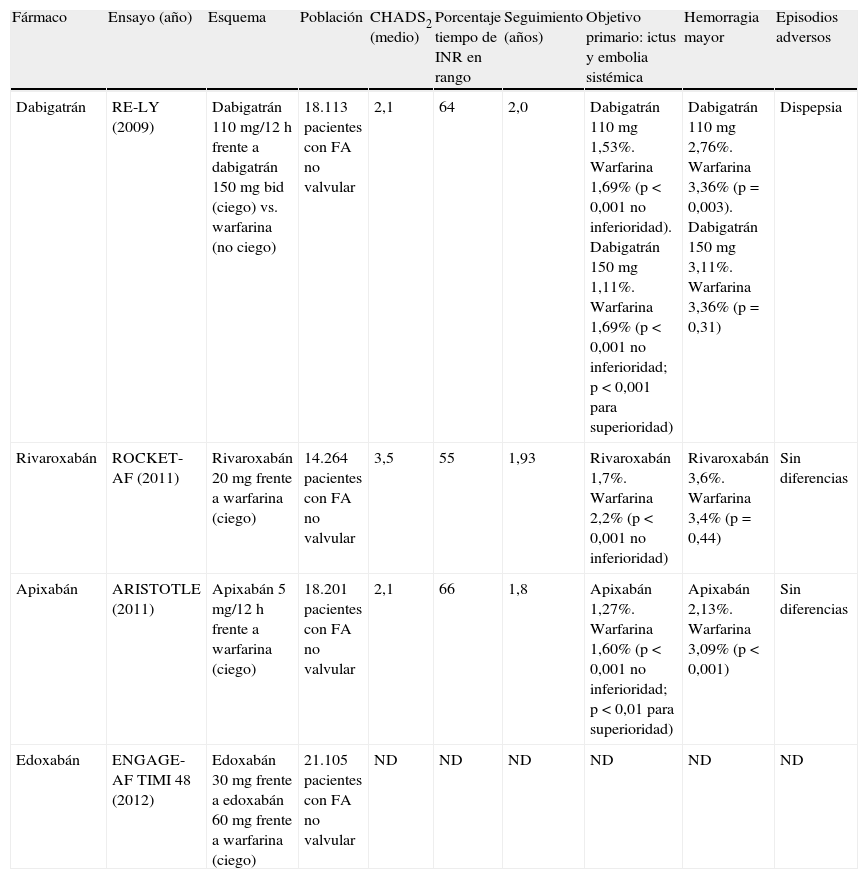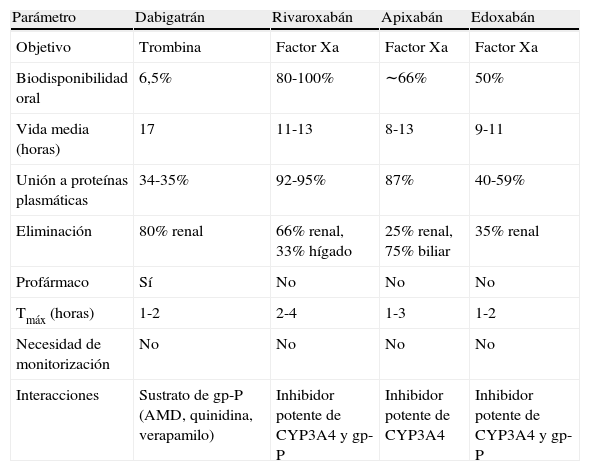Los inhibidores de la vitamina K han sido los fármacos más eficaces en el tratamiento anticoagulante de la fibrilación auricular durante las últimas décadas. Su abordaje presenta muchos incovenientes, que han hecho aunar los esfuerzos en el diseño de nuevas moléculas. Dabigatrán, rivaroxabán y, próximamente, apixabán, están disponibles en el mercado como alternativa al acenocumarol. Todos ellos han demostrado una eficacia al menos similar a warfarina en la prevención del ictus y fenómenos embólicos, y dabigatrán 150mg y apixabán, incluso superior. Todo ello con un perfil de seguridad mejor, especialmente en lo que a hemorragias graves/fatales e intracraneales se refiere. Esto supone una verdadera revolución. El avance de estos nuevos anticoagulantes únicamente va a estar limitado por el mayor coste económico, ya que de un modo progresivo probablemente pasen a ser los protagonistas de la anticoagulación oral en los pacientes con fibrilación auricular de origen no valvular.
For the last decades vitamin K antagonists have been the most effective anticoagulant treatment of atrial fibrillation. New molecules are being designed, mainly due to the great amount of disadvantages in the management of conventional anticoagulation. Dabigatran, rivaroxaban and apixaban will soon be available as an alternative to warfarin/acenocumarol. All of them have demonstrated to be non-inferior to warfarin in preventing stroke and systemic embolism, with even dabigatran 150mg bid and apixaban being superior. They have also a lower risk of bleeding, especially regarding severe/fatal and intracranial hemorrhages. This is a real revolution. The advance of these new anticoagulants will be limited only by the higher cost, and will progressively become the protagonists of oral anticoagulation in patients with nonvalvular atrial fibrillation.
Artículo
Comprando el artículo el PDF del mismo podrá ser descargado
Precio 19,34 €
Comprar ahora










